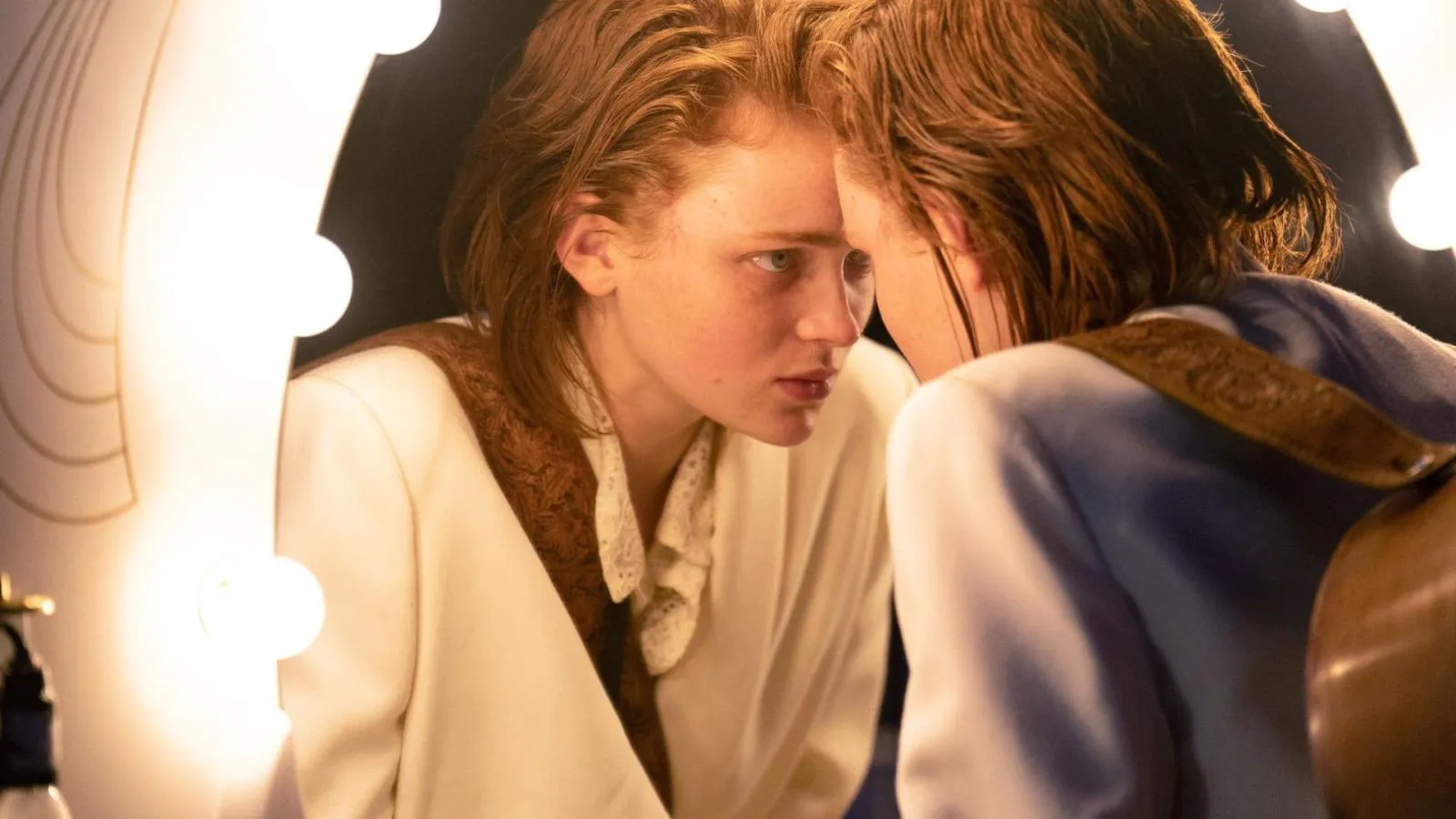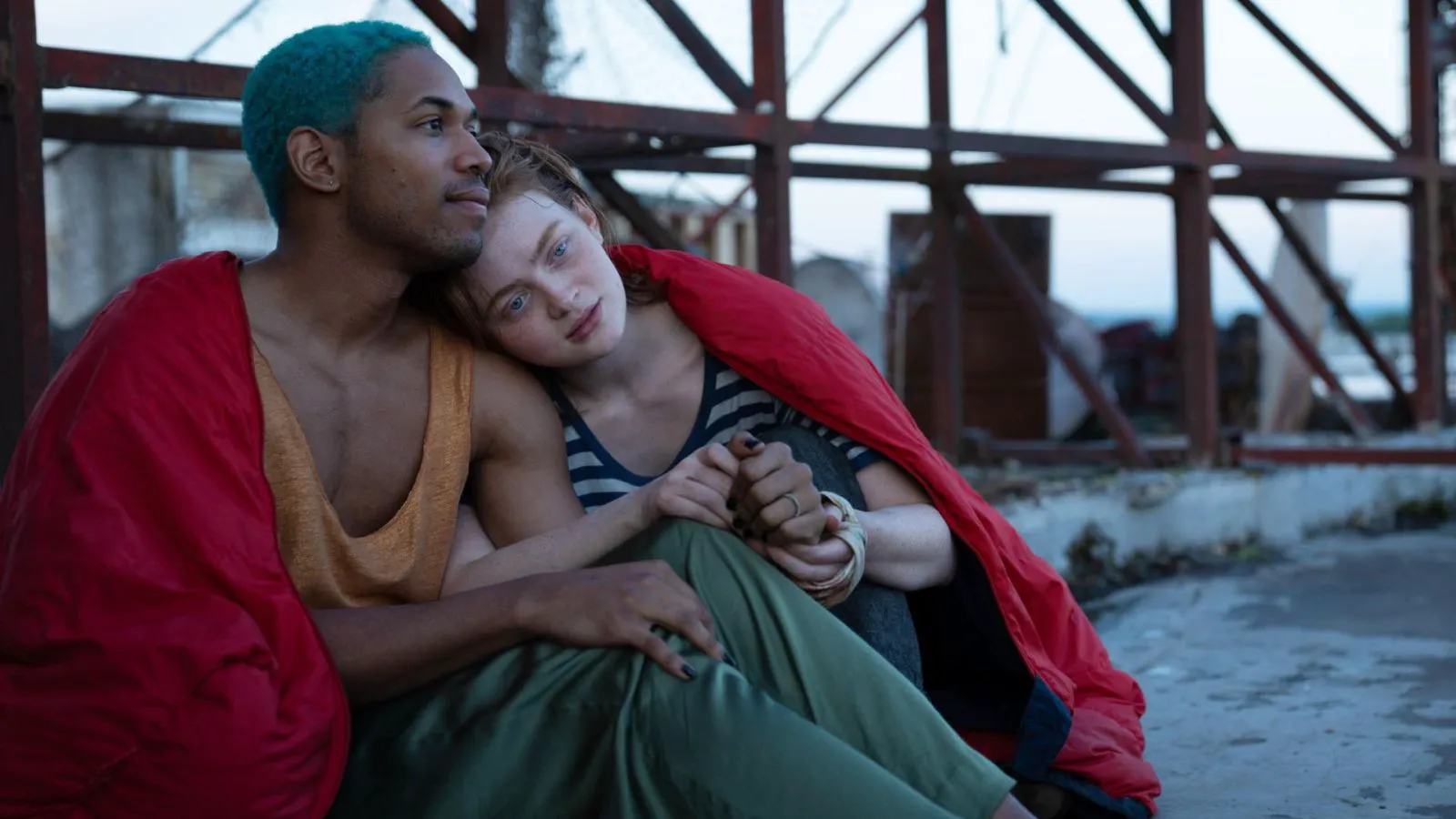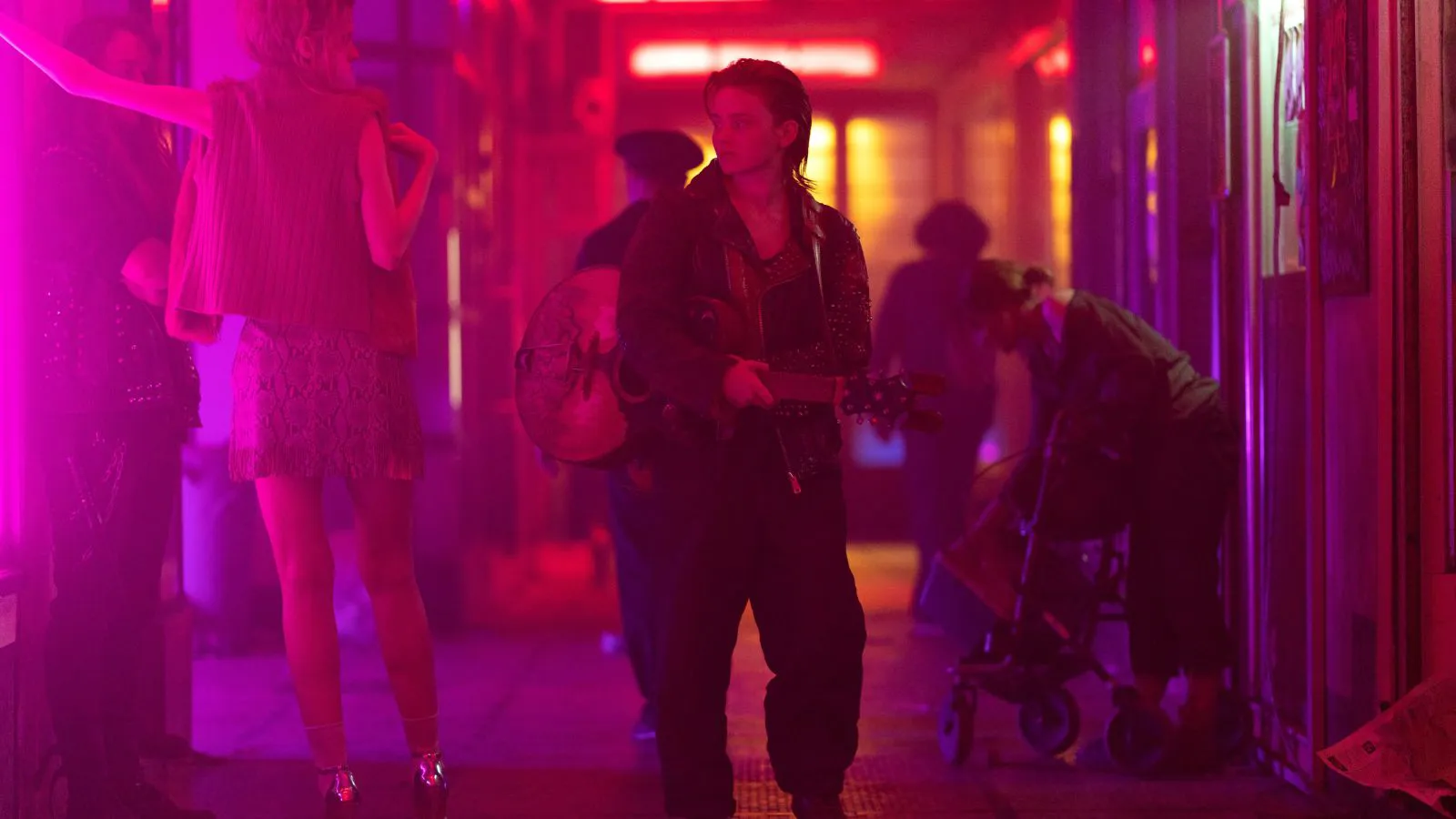O’Dessa: A Post-Apocalyptic Musical Journey
In a desolate, post-apocalyptic future, O’Dessa (Sadie Sink) lives a simple life on a farm with her mother (Bri Ellrod), yearning to explore the world beyond. When her mother passes away, O’Dessa inherits her father’s guitar and embarks on a journey, following in his wandering footsteps. However, her treasured instrument is stolen by a street gang, leading O’Dessa on a quest to reclaim her family heirloom, a quest that ultimately leads her to love.

Sadie Sink as O’Dessa in “O’Dessa”
Interestingly, the year the final season of “Stranger Things” aired, two of its stars found themselves in post-apocalyptic narratives. Just a week before “O’Dessa,” Millie Bobby Brown’s “The Electric State” premiered. Sadly, both films have faced a similar fate, failing to resonate with audiences despite the star power of Sink and Brown. “O’Dessa” is directed by Jeremy Jasper, known for the dramedy “Patti Cake$,” which also explored the transformative power of music. In this film, the protagonist’s music has a mesmerizing effect on the world around her.

Sadie Sink as O’Dessa in “O’Dessa”
A Familiar Chosen One Trope
“O’Dessa” relies on the well-worn trope of the chosen one. A musically gifted farm girl is prophesied to save humanity from the tyrannical Plutonovich (Murray Bartlett), a villain who controls society through hypnotic television broadcasts and live humiliation shows. The only hope for the oppressed lies in the “seventh son” (actually a daughter) with a guitar. However, the convoluted plot lacks crucial details and backstory. The futuristic setting alone isn’t enough to make the audience invest in this complex ballad about the fall of civilization and a musical messiah.
Character Development Shortcomings
The film also neglects to develop its protagonist adequately. O’Dessa is meant to be the heart of the story, but we know little about her beyond her destiny as a savior. The supporting characters are equally underdeveloped, serving as mere plot devices without any real depth.

Sadie Sink as O’Dessa in “O’Dessa”
A Cyberpunk Retelling of Orpheus and Eurydice
Jeremy Jasper’s film can be seen as a loose adaptation of the myth of Orpheus and Eurydice, set in a cyberpunk world. Like Orpheus, O’Dessa possesses the power to captivate with her music. She falls in love with Euri (Kelvin Harrison Jr.), but their happiness is short-lived, mirroring the tragic Greek tale. Soon, O’Dessa must navigate treacherous waters to confront Plutonovich and save her beloved, using her music as her weapon. The director cleverly subverts gender roles, with O’Dessa’s style being more masculine than Euri’s. This reimagining of a classic legend is perhaps the film’s most intriguing aspect.
Love is a central theme in this musical. Passion ignites hope in the darkness, inspiring O’Dessa, and in the finale, she reminds the audience through song that “Love is everything.” However, despite Sadie Sink’s beautiful voice, the music and lyrics fail to resonate deeply. While the characters are captivated by her singing, and a spark of hope is ignited in the hearts of the desperate, the audience is likely to remain unmoved. The lack of a compelling story and chemistry between the lovers may be to blame. Their connection feels forced, and their relationship is simply uninteresting to watch unfold. “O’Dessa” is an ambitious project that ultimately falls short of its potential. It feels like an unfinished work, a rough draft of something greater, or a pleasant but forgettable song whose lyrics fade from memory.